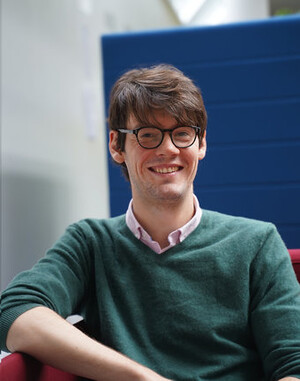Events
Mar 15, 2023
Seminar (2023-03-15)
School of Biomedical Sciences and School of Biological Sciences cordially invite you to join the following seminar:
Date: 15 March 2023 (Wednesday)
Time: 3:00 – 4:00 pm
Venue: Rm 3N01, 3/F, Kadoorie Biological Sciences Building, The University of Hong Kong
Speaker: Dr. Georg Hochberg, Independent Max Planck Research Group Leader, Max Planck Institute for Terrestrial Microbiology
Talk Title: Evolution of increased complexity and specificity at the dawn of Form I Rubiscos
Moderator: Dr. Ralf Jauch and Dr. Chaogu Zheng
Biography

Dr. Georg Hochberg has been an Independent Max Planck Research Group Leader, Max Planck Institute for Terrestrial Microbiology since 2019. His lab studies the evolution of protein complexes as a model system for how biochemical complexity originates, is maintained, and changes over evolutionary time-scales. His lab combines state of the art biophysical techniques molecular phylogenetics and ancestral protein reconstruction. Prior to that, he was a Postdoc in Evolutionary Biochemistry with Joe Thornton, Department of Ecology and Evolution, University of Chicago in 2015-2019. He has obtained his DPhil in Systems Biology with Justin Benesch, Department of Chemistry, University of Oxford in 2010-2015 and his BA in Biological Sciences from the University of Oxford in 2007-2010.
Abstract
The enzyme Rubisco is responsible for almost all carbon fixation on earth. The evolution of Rubiscos that discriminate strongly between their substrate CO2 and the undesired side-substrate O2 over 2 billion years ago was a key step in the rise of oxygenic photosynthesis and complex aerobic life. I will discuss how we used ancestral sequence reconstruction and the biochemical characterization of ancient, resurrected Rubiscos to recapitulate this crucial event. This showed how Rubisco increased its specificity and carboxylation efficiency through the gain of a new accessory subunit before significant atmospheric oxygen was present. It also illuminated why Rubisco subsequently became completely dependent on this new interaction. I will conclude by briefly discussing ongoing work on the evolution of the ‘Rubiscosome’: a set of dedicated chaperones that became necessary to fold and assemble Rubisco along the lineage to plants.
All are welcome.
